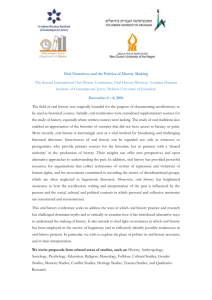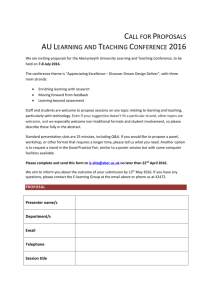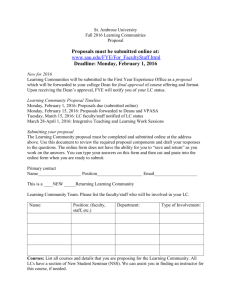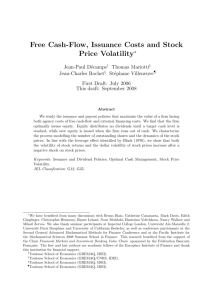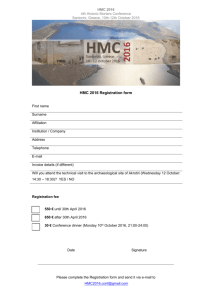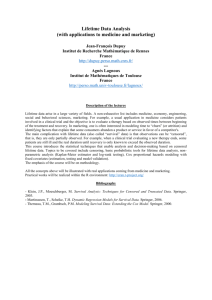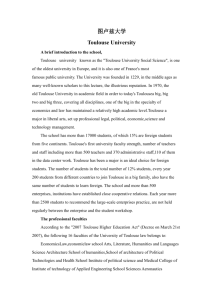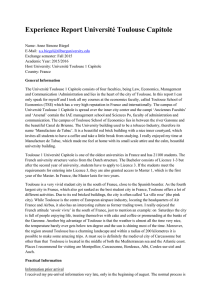Call for Papers French Association of Economic History (AFHE
advertisement
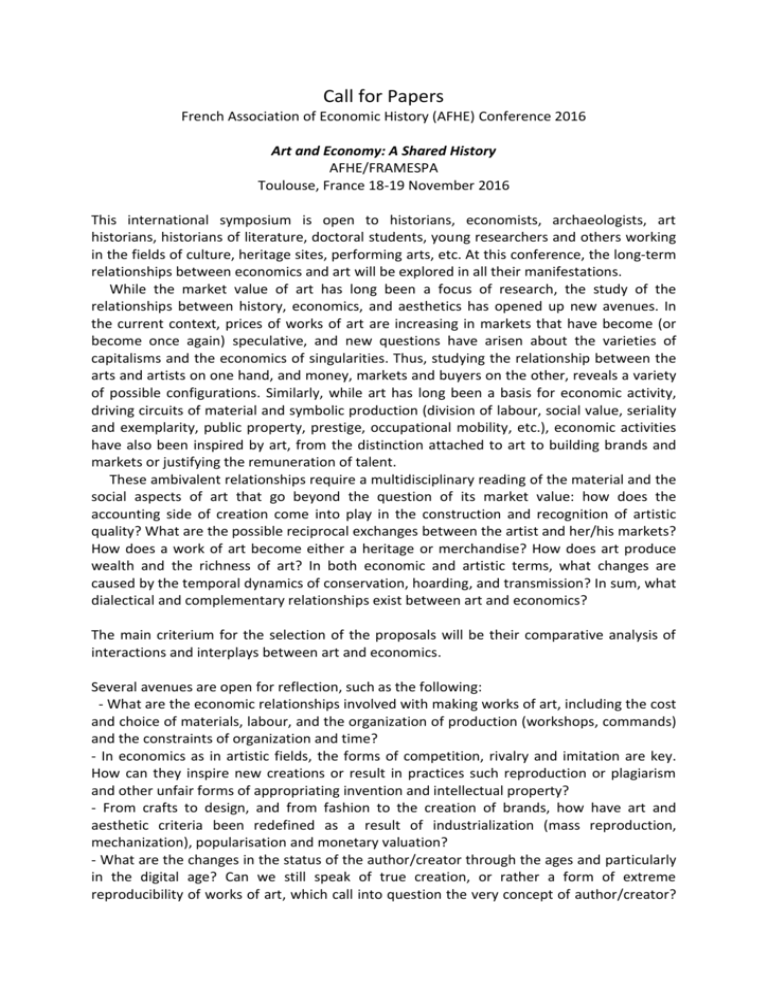
Call for Papers French Association of Economic History (AFHE) Conference 2016 Art and Economy: A Shared History AFHE/FRAMESPA Toulouse, France 18-19 November 2016 This international symposium is open to historians, economists, archaeologists, art historians, historians of literature, doctoral students, young researchers and others working in the fields of culture, heritage sites, performing arts, etc. At this conference, the long-term relationships between economics and art will be explored in all their manifestations. While the market value of art has long been a focus of research, the study of the relationships between history, economics, and aesthetics has opened up new avenues. In the current context, prices of works of art are increasing in markets that have become (or become once again) speculative, and new questions have arisen about the varieties of capitalisms and the economics of singularities. Thus, studying the relationship between the arts and artists on one hand, and money, markets and buyers on the other, reveals a variety of possible configurations. Similarly, while art has long been a basis for economic activity, driving circuits of material and symbolic production (division of labour, social value, seriality and exemplarity, public property, prestige, occupational mobility, etc.), economic activities have also been inspired by art, from the distinction attached to art to building brands and markets or justifying the remuneration of talent. These ambivalent relationships require a multidisciplinary reading of the material and the social aspects of art that go beyond the question of its market value: how does the accounting side of creation come into play in the construction and recognition of artistic quality? What are the possible reciprocal exchanges between the artist and her/his markets? How does a work of art become either a heritage or merchandise? How does art produce wealth and the richness of art? In both economic and artistic terms, what changes are caused by the temporal dynamics of conservation, hoarding, and transmission? In sum, what dialectical and complementary relationships exist between art and economics? The main criterium for the selection of the proposals will be their comparative analysis of interactions and interplays between art and economics. Several avenues are open for reflection, such as the following: - What are the economic relationships involved with making works of art, including the cost and choice of materials, labour, and the organization of production (workshops, commands) and the constraints of organization and time? - In economics as in artistic fields, the forms of competition, rivalry and imitation are key. How can they inspire new creations or result in practices such reproduction or plagiarism and other unfair forms of appropriating invention and intellectual property? - From crafts to design, and from fashion to the creation of brands, how have art and aesthetic criteria been redefined as a result of industrialization (mass reproduction, mechanization), popularisation and monetary valuation? - What are the changes in the status of the author/creator through the ages and particularly in the digital age? Can we still speak of true creation, or rather a form of extreme reproducibility of works of art, which call into question the very concept of author/creator? What are the relationships between governments, public authorities and private businesses and art and artists through patronage (public, royal and others), private foundations, production (design and manufacturing), market regulation, etc.? - What are the roles of art dealers and experts in defining the value of art? What are the possible contradictions between aesthetic value and market value? What market mechanisms are at work in the phenomena of patrimonialisation? - Is there a status of the art outside the market, or rather a ‘hidden’ art, which is separate from the market and sometimes even from public view (sacred art, relics)? What are the issues linked with the inalienability of certain works and whether artistic work is free? Proposals Proposals (3,000 characters maximum in Word or PDF file) must include a title, an explicit problem and a short bibliography. The author must include an overview of her/his work and a short biography not exceeding 1,000 characters. The proposals will be subject to review by members of the organizing committee and the academic committee. Proposals must be received by e-mail (ArtetEconomie.Toulouse.2016@gmail.com) before 12 February 2016. The conference proceedings will be published (final versions of articles for publication must be received by Spring 2017). Languages Papers can be given in French or in English and must not exceed 20 minutes. Key Dates 12 February 2016: deadline for proposals Mid-March 2016: accepted proposals will be notified 9 September 2016: a copy of the paper to be given must be sent to the committee (20,000 characters) 18-19 November 2016: conference in Toulouse Spring 2017: final version of articles for publication Organizing Committee Anne Conchon (University of Paris I-Pantheon-Sorbonne-AFHE), Natacha Coquery (University of Lyon II-AFHE), Cecilia D’Ercole (Ecole des hautes études en Sciences Sociales, Paris- AFHE), Nicolas Marty (University of Perpignan- AFHE), Jean-Michel Minovez (University of Toulouse), Jean-Marc Olivier (University of Toulouse), Anne Perrin-Khelissa (University of Toulouse), Emilie Roffidal (CNRS, Toulouse). Academic Committee Marco Belfanti, University of Brescia Philippe Bernardi, CNRS, Paris Roberto Casati, CNRS, Paris Manuel Castiñeiras, Universita Autònoma de Barcelona Michael Hutter, Technische Universität Berlin Lesley Miller, Victoria and Albert Museum, Londres France Nerlich, University François Rabelais, Tours Laurent Tissot, University of Neuchâtel
